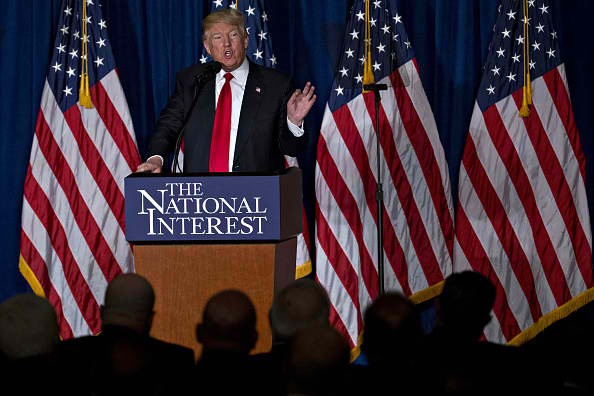The United States may have to pay a stiff price for Donald Trump's presidential victory, which could mean turning its back on trade deals that U.S. President Barack Obama had tried to hammer out for years.
One of these deals includes the Trans-Pacific Partnership (TPP), which involved Japan and 10 other countries which make up 40 percent of the world economy.
According to the Financial Times, the TPP issue has always been discussed during gatherings of world leaders, such as the Asia-Pacific Economic Cooperation (APEC) summit on Nov. 20 in Lima, Peru.
As part of the TPP strategic trade alliance and other deals with the EU, the U.S. wants to isolate and contain China's rise in the global arena.
But with Trump's victory and considering his protectionist pronouncements during the campaign, the U.S. may have to abandon the deals.
With this development, China may move to take the leadership of economic integration in the Asia-Pacific region away from the U.S.
Among APEC's 21 member countries, the focus in the Lima summit will be China's proposed Free Trade Area of the Asia Pacific (FTAAP), which may be a real alternative for countries seeking strong economic ties in the Asia-Pacific, the world's fastest growing region.
"You can't beat something with nothing and the Chinese are offering something," Adam Posen, head of the Washington-based Peterson Institute for International Economics, said.
The report said that leaders and ministers in Lima are interested with the China-initiated study to see how it will be implemented and how it will proceed. The FTAAP would cover countries from Indochina to Latin America, including the U.S.
For years, the U.S. has been offering the TPP to become the main building block of the FTAAP to get ahead with China. All 12 TPP members are also APEC members.
But another rival to the TPP is being proposed by China: the Regional Comprehensive Economic Partnership (RCEP). RCEP, which is nearing completion, was established by the 10 members of the Association of Southeast Asian Nations (ASEAN) in 2013 with the aim to merge the group's trade deals with China, India, Japan and others.
Although seven of the 12 TPP countries are RCEP members, U.S. experts said the deal was only aimed at getting reduced tariffs and trade barriers. But unlike the TPP, the RCEP has no rules that cover areas such as those of state-owned enterprises or cross-border data.
With Trump's election, "countries have realised very quickly that (RCEP) is the only major Asia trade deal on the table," according to Joshua Meltzer, a former Australian diplomat now at the Brookings Institution in Washington.
But other countries such as Japan and New Zealand are not willing to give up on the TPP and may ratify the deal even without the U.S., according to the report.
The U.S. turnaround in its trade policies may have other consequences, such as the EU-U.S. deal--the Transatlantic Trade and Investment Partnership (TTIP)--which has already become a political issue.
"The world does need U.S. leadership. Without a TPP or a TTIP, it doesn't look like western democracies are all that capable of pursuing trade agreements," Dan Ikenson, director of trade research at the libertarian Cato Institute, observed.
But Trump supporters however, argued that the U.S. trade policy is based on geopolitics, not on economic reason, and Trump may enforce existing agreements or re-negotiate them to benefit the U.S.
"The U.S. has been positioning itself to be the good guy of trade and open markets since World War Two. I think now the U.S. needs to discuss how it has been dealt serious disadvantages," Phil English, a former Republican congressman who served as a Trump delegate to July's Republican convention, said. "I think this is going to be liberating."



























